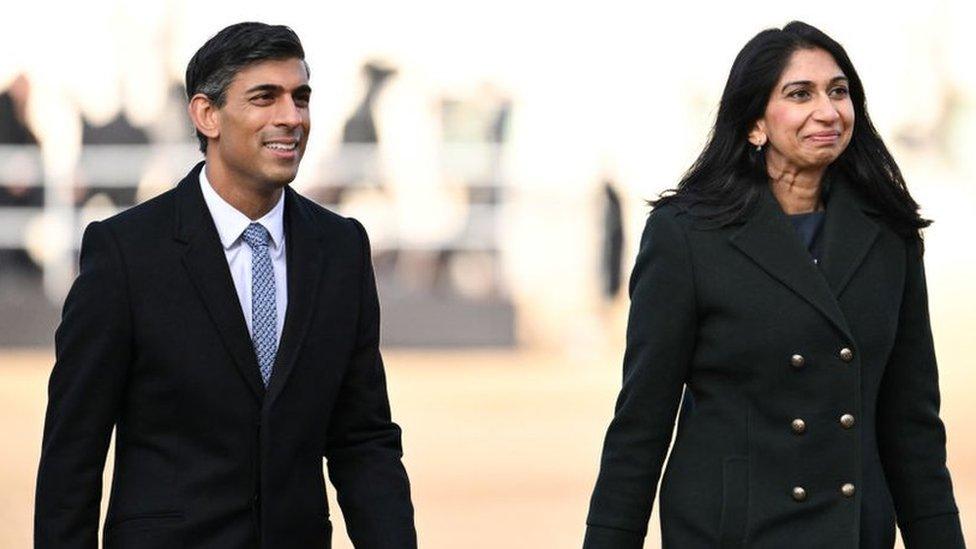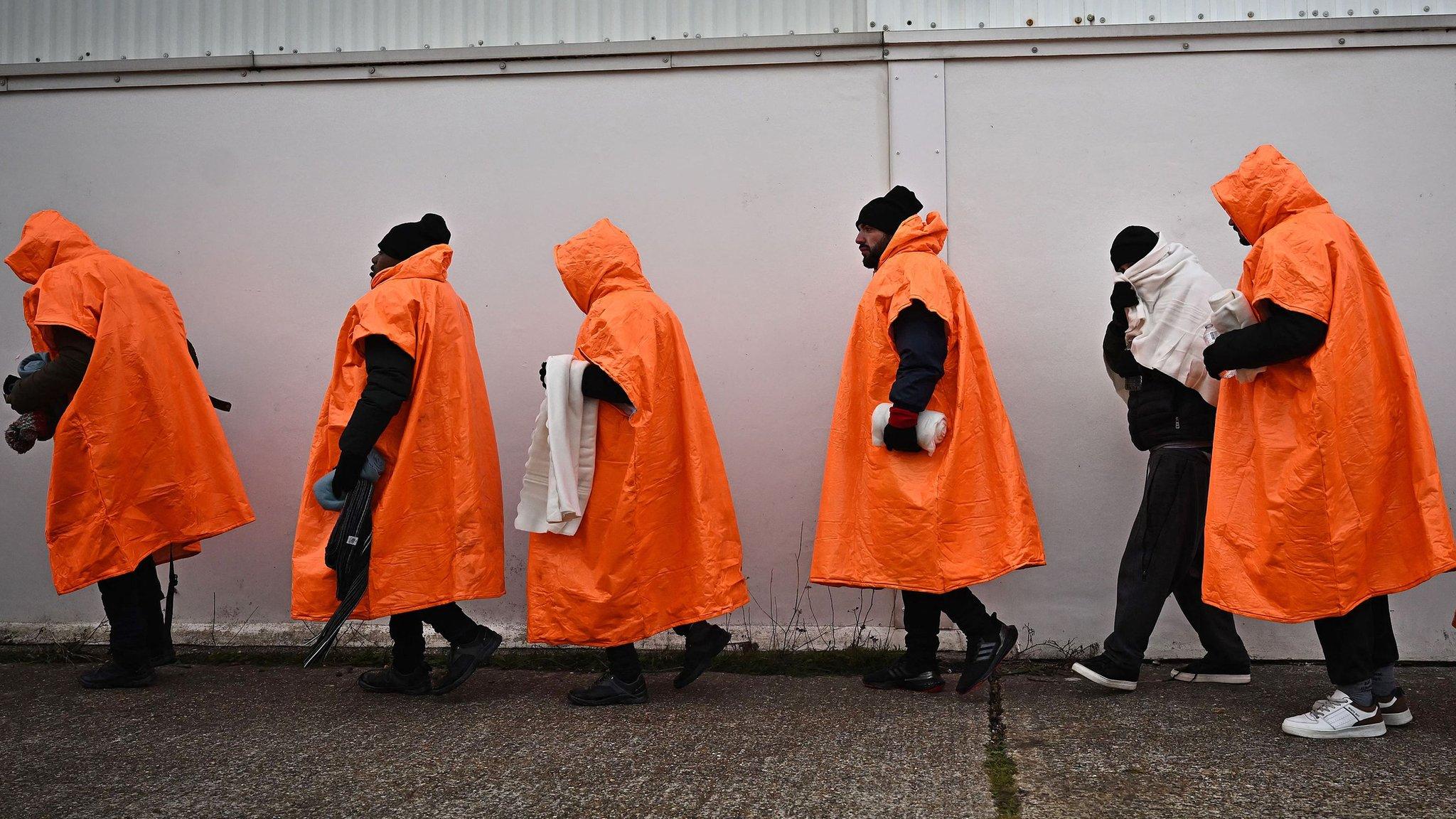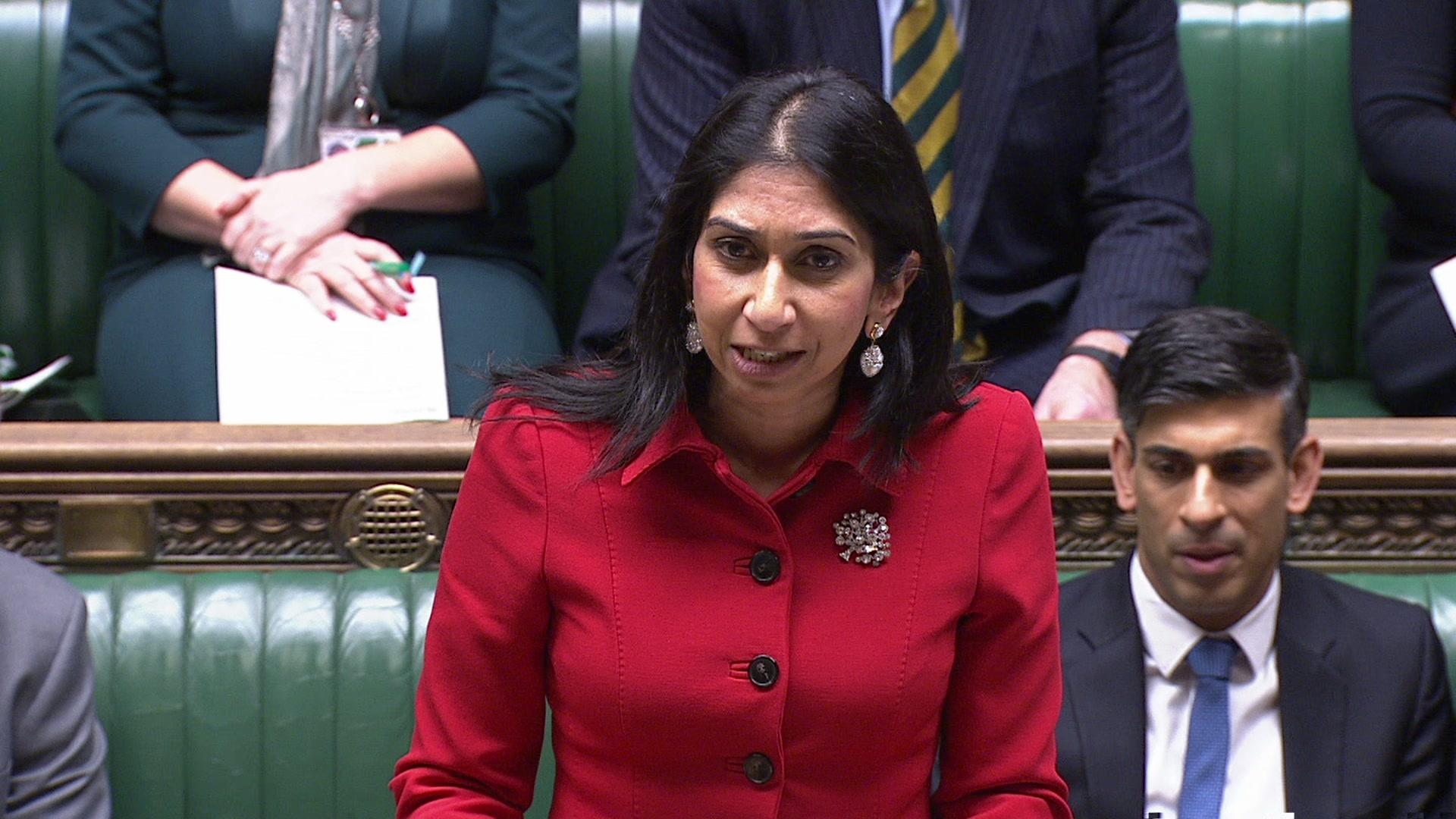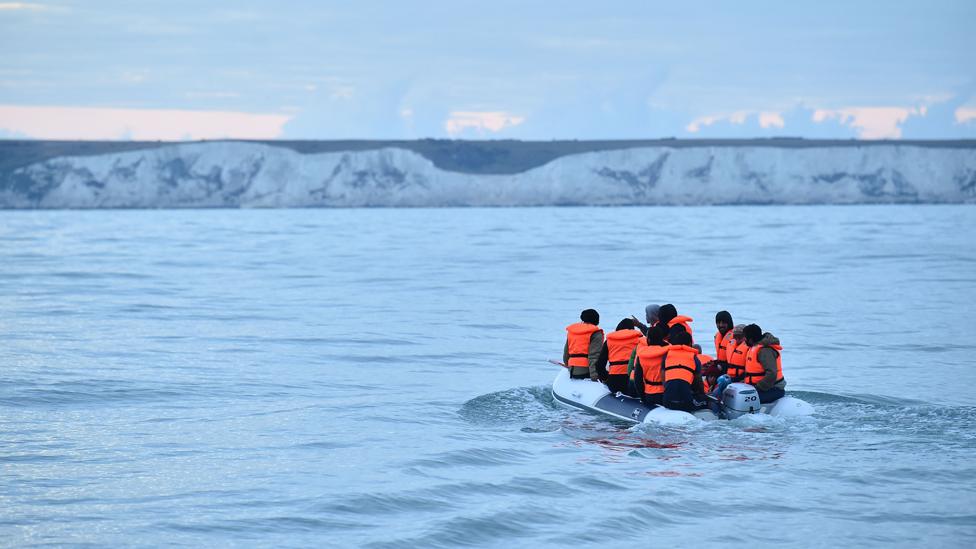Small boats bill aimed at galvanising political support at home
- Published

It was delivered by Suella Braverman, but this was unmistakeably Rishi Sunak's own policy.
The prime minister has made "passing new laws to stop the small boats" one of his five priorities.
He was conspicuously seated behind his home secretary, visible in the TV coverage, nodding, smiling and voicing his assent at key points as she outlined the new legislation.
Delivering the new law is part of his plan to try to turn around the Conservatives' flagging poll ratings before the next election.
Ms Braverman spoke of her approach being "supported by the British people" and she made a point of warning of 100 million people "who could qualify for protection under our current laws... they are coming here" aiming to tap into fears about growing numbers of arrivals.
So the legislation may be, on the face of it, about stopping boats, it's also squarely aimed at galvanising political support at home.
The debate was a divisive one, short on any details about the how this new policy is actually going to work.
One after another, opposition MPs stood up to criticise the plan as a policy "that depends on dehumanising some of the most vulnerable people on earth", one based on "xenophobia and racism" and one that may breach the UK's international legal obligations.
Suella Braverman appeared content to portray herself as someone prepared to take robust action. It was, she said, "irresponsible to suggest someone who wants to take a firm line on our borders is racist".
One after another Conservative MPs rose to praise her approach as "excellent".
But she couldn't say whether the legislation in fact complies with human rights law, where holding centres will be built, what 'safe' countries refugees could be deported to, or what routes will be opened for people to come legally to the UK.
In a letter to MPs about the bill, Ms Braverman said there was a "more than 50% chance" that the legislation was not compatible with international law, and specifically the UK's obligations under the European Convention on Human Rights.
It's pretty rare for the government to publish legislation that it knows may breach international law. So why is it pressing ahead? Well, the answer is down to how this will all play with audiences in the UK.
Government must act with determination and compassion - Suella Braverman
The debate clearly illustrates how Rishi Sunak and Suella Braverman hope to try to corner Labour.
Their aim is to paint Labour as weak when it comes to stopping boats. Labour's Yvette Cooper launched into her attack on the new legislation saying it does little different to that passed by Priti Patel a year ago and that hasn't solved the problem, rather made it worse.
Labour wants to portray the government as ineffective. Its plan is to call for more serious cross-border police action and says the government is stirring up this issue to "have someone else to blame."
The prepared retort from Ms Braverman was that Labour's leader Sir Keir Starmer "doesn't want to stop the boats".
The issue didn't figure in his "missions" for his leadership, she said, seeking to draw a contrast with Mr Sunak.
The new policy is already being put to work to try to frame people's views of the government and its opponents.
So already in this first debate you could see how the government hopes to exploit the issue politically, using it to try to frame people's views of Mr Sunak and his opponents.
- Published13 December 2023

- Published7 March 2023

